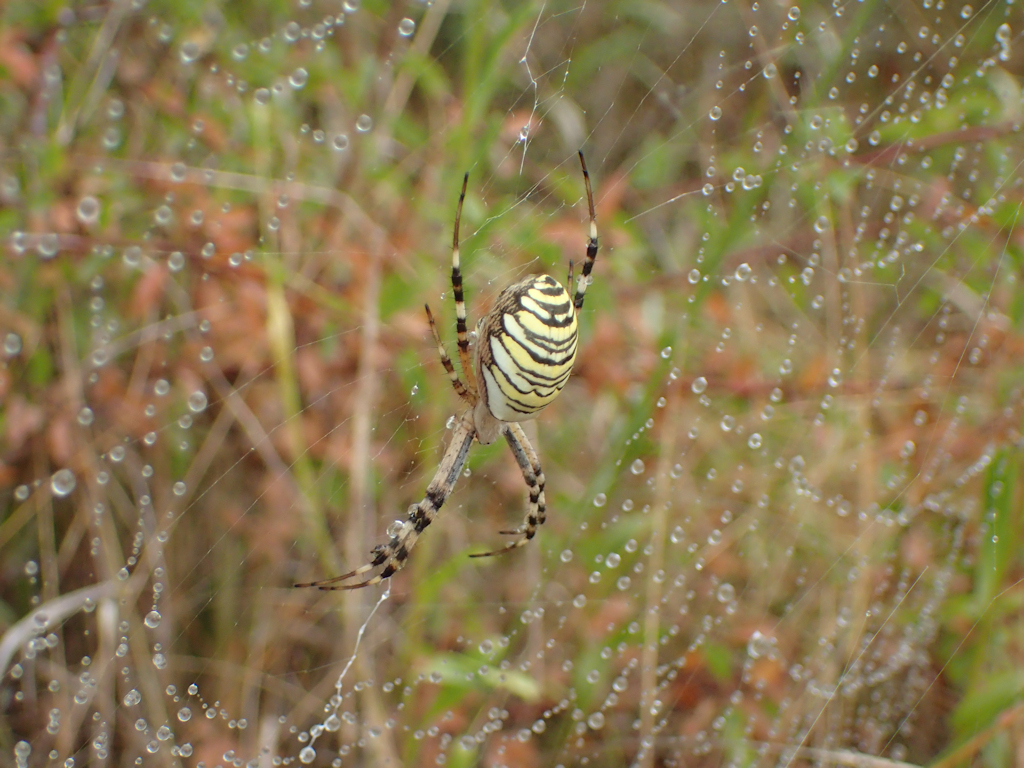RESPONSE: Phenotypic plasticity and genetic adaptation within and between populations of a range-expanding spider
Projektbeschreibung
Global climate change often results in poleward range expansions. A promising model species for rapid range expansion is the orb-weaving spider Argiope bruennichi that moved from the Mediterranean region into continental climates and up to Scandinavia and Finland in less than 100 years. However, global warming alone is not sufficient to explain the spread of this spider species. This rapid range expansion is attributed to hybridization and genetic admixture of formerly isolated lineages, made possible by global warming, resulting in introgression of alleles from Asian populations of the species into the central European genepool. Admixture can provide a population with novel genetic variation, which can then result in rapid adaptation to novel climates. In Argiope bruennichi, the genetic differences have already been linked to differences in thermal preference, and it is proposed that there may be genetic differences leading to increased cold tolerance in the northernmost populations, which survive much more extreme winter conditions than their southern counterparts (Krehenwinkel & Tautz, 2013; Krehenwinkel et al., 2016)
To illuminate the factors contributing to A. bruennichi’s rapid range expansion and successful colonization of northern Europe further, we try to distinguish the roles of phenotypic plasticity and genetic adaptation. We approach this by investigating differences in morphology, body size, development, dispersal behavior, metabolism and cold tolerance strategy between populations via common garden experiments, and then linking these differences either to the conditions to which they were exposed (phenotypic plasticity), or their genotype/population of origin (genetic adaptation). Additionally, the microbiome may play a role in any or all of the aforementioned population differences, given the influence of microbes on all aspects of animal evolution and ecology.
This project is involved in the research training group of the German Science Foundation (DFG RTG 2010).
Kooperationspartner:
Jr. Prof. Dr. Henrik Krehenwinkel, University of Trier
Prof. Dr. Dries Bonte, Ghent University
Prof. Dr. Jutta Schneider, University of Hamburg
Prof. Dr. Rosemary Gillespie, UC Berkeley
- Sheffer, M.M.; Zander, L.; Schulze, B.; Mouginot, P.; Naef, T.; Kreyling, J.; Gillespie, R.G.; Hoff, K.J.; Prost, S.; Krehenwinkel, H. & Uhl, G. 2021. Rapid ecological and evolutionary divergence during a poleward range expansion. bioRxiv.
- Krehenwinkel, H.; Graze, M.; Rödder, D.; Tanaka, K.; Baba, Y.; Muster, C. & Uhl, G. 2016. A phylogeographic survey of a highly dispersive spider reveals Eastern Asia as a major glacial refugium for Palearctic fauna. Journal of Biogeography 43: 1583-1594.
- Wolz, M.; Klockmann, M.; Schmitz, T.; Pekár, S.; Bonte, D. & Uhl, G. 2020. Dispersal and life-history traits in a spider with rapid range expansion. Movement Ecology 8: 2. DOI:10.1186/s40462-019-0182-4
- Sheffer, M.M.; Uhl, G.; Prost, S.; Lueders, T.; Urich, T.; Bengtsson, M.M. 2020. Tissue- and population-level microbiome analysis of the wasp spider Argiope bruennichi identified a novel dominant bacterial symbiont. Microorganisms 8: 8. DOI: doi.org/10.3390/microorganisms8010008
- Sheffer, M.M.; Hoppe, A.; Krehenwinkel, H.; Uhl, G.; Kuss, A.W.; Jensen, L.; Jensen, C.; Gillespie, R.G.; Hoff, K. & Prost, S. 2021. Chromosome-level reference genome of the European wasp spider Argiope bruennichi: a resource for studies on range expansion and evolutionary adaptation. GigaScience 10: 1. DOI: doi.org/10.1093/gigascience/giaa148





